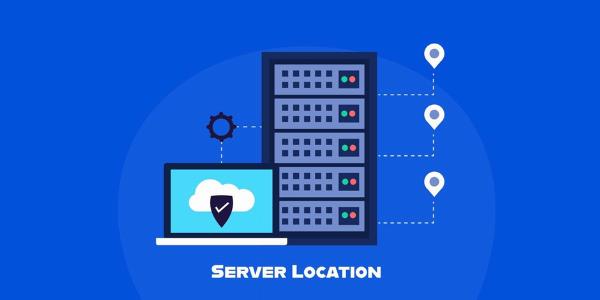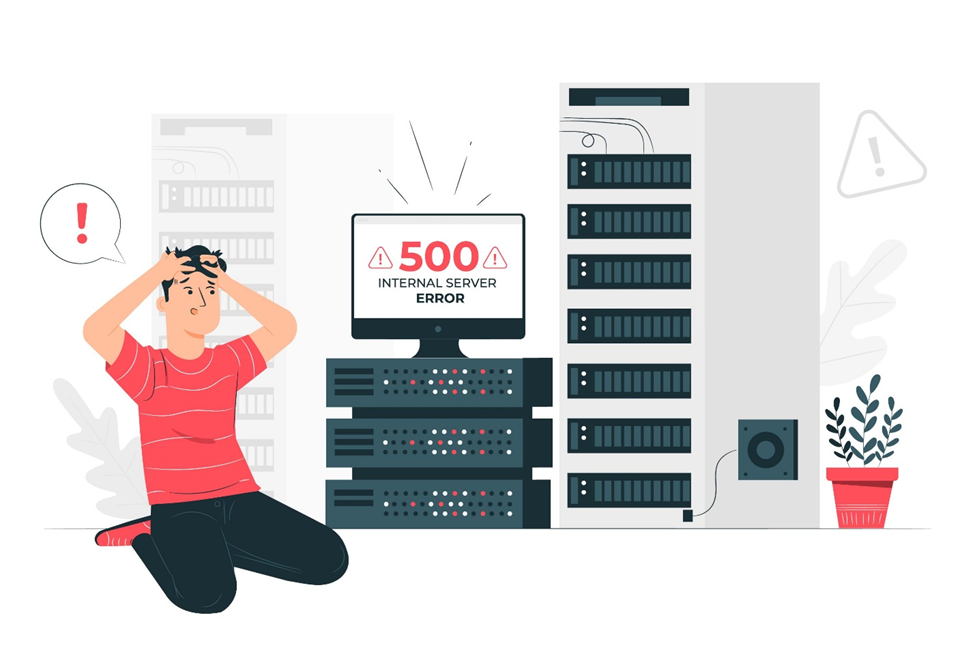The Significance of Server Location in Cheap Web Hosting

Strong 8k brings an ultra-HD IPTV experience to your living room and your pocket.
When searching for a web hosting provider, the location of the server you choose is vital since it can have a considerable impact on the speed and performance of your website. When it comes to ensuring that visitors can access your material in a timely and efficient manner, server location might be of critical importance.
In this article, we will discuss the significance of server location in cheap web hosting.
What Exactly is Web Hosting?
Web hosting is a service that gives websites, emails, and apps the space and server power they need to run on the Internet. Everyone wanting a website must make one and then put it somewhere. To do this, you need the best web hosting service hooked up to the Internet. You can use them to run websites, send emails, run apps, and store files.
A data centre is just a bunch of computers that are always on and linked to the Internet. There are numerous approaches to hosting an event. Shared web hosting is the cheapest service because many people share one server. Each gets some disk space, but the remaining resources are shared.
VPS, or Virtual Private Server, is the second choice. It involves breaking the server up into smaller "virtual" servers. They each have their own RAM, disk space, and processor cores. Dedicated web hosting is the third type of web hosting. One customer rents the whole server from the company that does hosting.
Other kinds of web hosting services exist, like cloud hosting or VDS, but the most basic types of web hosting services are dedicated, shared, and virtual.
What is a Server Location?
The address of a computer server is its server location. It is the location where all of the information pertaining to your website is stored. The closer your web server is to the people you want to see it, the faster they can get to it. Choosing the best server site for your website is very important.
When choosing a server location, you should think about latency, cost, security measures, and the availability of technical help.
Latency, or the amount of time it takes for data packets to get from one location to another, is a feature that affects how fast pages and apps on the server load and how quickly they respond.
Cost is also a big factor in determining which web hosting service and plan are best for your needs. Local taxes or other rules affecting pricing structures across different regions or countries could make some places cheaper. When choosing a web hosting service, check out their security features. DDoS protection should be a must.
You should also think about the availability of technical help. If something goes wrong with your website or web hosting environment, will someone be there around the clock? Or just at certain times? If you know this information beforehand, you can avoid problems that might come up in the future, saving you time and money.
In the end, the location of a server is an important factor to consider when choosing a cheap web hosting service, as it can have a big effect on how fast and well a website works.
How Important is Server Location?
Location is often overlooked, but experts have known for a long time that the location of a server is a key success factor for a business's IT strategy. There are, of course, a lot of things at play, but most people agree that businesses should store their files in a secure building in a secure location.
Imagine running your business without common things like emails, files, bills, etc. Almost every business uses these files and information daily, and losing them can be very bad for any company.
First, some locations are more likely to have natural disasters like earthquakes or storms. Others, like the Middle East, face political uncertainty and unrest, like the recent uprisings. The euro problem has made many European countries that were once thought to be very stable financially look like they are not doing so well.
Another worrying trend is that governments are getting more involved, especially in those that aren't fair. Because of these worries, companies would be smart to look into the location of any possible cheap web hosting provider's facilities.
Effects of Server Location.
1. SEO results are affected by where your server is located
When a person spends more time on your website, their "dwell time" (the time they spend looking at it after clicking on the link from a SERP) is higher. "Bounce rate," on the other hand, is the number of people who visit one page of your website and then click to go to another page, either on your website or another. Search engines use both important factors to decide how to rank pages.
You can choose a target country in Google Search Central, which used to be called Google Webmasters and is a part of Google search engines. But if you register your domain name with a country TLD, like ".de" for Germany, Google will automatically link these country TLDs to your target country, so you won't have to.
Let's say you decide not to choose a country. In that case, Google will look at all of your competitors' sites and use the following information to figure out where your server might be physically located:
· The address of your server as it appears in the Internet Protocol (IP) header
· Your website's material, such as contact information or snippets of text, can be found on
· Any links that are currently pointing to your website.
· You don't have to choose a unique server location if your website is for people worldwide. Instead, use a CDN to get pages to load faster.
2. Content Delivery Network (CDN)
A Content Delivery Network (CDN) is a collection of servers that are spread out all over the world. It helps cut down on latency by bringing the server and customer closer. A Content Delivery Network (CDN) stores cached copies of your website's content in various locations worldwide.
Without a CDN, the main servers have to handle every request from a user. Because of this, the servers get flooded with requests, which slows down data transfer.
CDN responds to calls from close to the user's location. When a user clicks on your site, some information is sent from the CDN server that is closest to them. The rest is loaded from the server that hosts your site.
A CDN speeds up the time it takes for your website to send out pages. Also, if you have customers worldwide, a CDN can help lessen the load on your servers and speed up reaction times.
3. Website speed is affected by server location
The physical address of your server is one of the most important things that affects how fast your website loads.
If your servers are far away, it will slow down data transfer. Because of this, your users will notice slowness on your site.
The servers near the people you want to reach will send data over shorter distances. Because of this, the response times for your users will be quick.
You must decide which area of the data centre will offer your viewers localized web hosting.
Google found that 53% of mobile users are likely to leave a website if it takes more than 3 seconds for a page to load. The analysis also talks about how latency directly affects your income.
Website speed is a factor that search engines use to rank sites. To speed up your site, you must close it where your customers are.
4. Legal compliance is affected by where the server is located
Web hosting your website in a different country can also affect how the law treats you. Before storing your data in those places, you must follow the rules and laws.
Some countries may not let servers store private information about users. If you don't follow their rules, there could be financial consequences.
Before you use servers in a country, you need to know the data rules. If your websites don't follow the rules, users won't be able to get to them, which could hurt your SEO results.
How Do I Choose the Right Location For a Server?
If you don't want the address of your server to hurt your website, you can either
1) Pick a server location that is closer to your customers.
2) Select a website host that offers a CDN.
1. Pick a server location that is closer to your customers-
As we've already discussed, if most of your customers are in a certain location, putting your server there or as close as possible is best. This will keep latency to a minimum.
But what if the web host you choose doesn't have a data centre in the area where most of your customers are? Will something happen to your website? It depends.
The speed at which your page loads depend on the cheap web hosting provider you choose, the services they offer, and the type of web hosting you choose. Now we can talk about our second point.
2. Select a website host that offers CDN-
A material Delivery Network is a group of servers in strategic locations worldwide that store material that has already been downloaded. One of the most important things about a CDN is that it ensures your website loads at the same speed no matter where your users are on your server. This cuts down on the time everyone has to wait.
Conclusion
For a website, web hosting is essential. There is many various type of web hosting services for storing websites. We should also look at the server's location when picking a cheap web host. A website needs to have a good server address. The position of a server affects SEO rankings, loading speed, and legal compliance. CDS makes the computer less busy and speeds up the time it takes to respond. Server position also had an effect. To choose the right server location, we can choose a server location closer to your location or a web hosting provider offering CDS.
Ann Taylor
M2Host
m2host.com
We provide experienced web hosting services tailored to your unique needs.
Facebook Twitter Instagram
Note: IndiBlogHub features both user-submitted and editorial content. We do not verify third-party contributions. Read our Disclaimer and Privacy Policyfor details.







